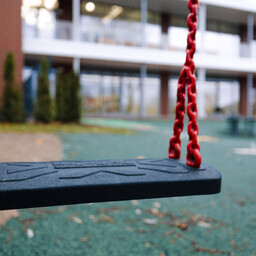Riigikohus otsustas, et kui
linn või vald
ei suuda ise rahastada uute lasteaiakohtade rajamist, võib ta küsida raha arendajalt. See kehtib eelkõige suurte arendusprojektide puhul, kus tuleb palju uusi elanikke.
linn või vald
Tõlge fraasile: linn või vald
EN
city or municipality
Juba mitu aastat on arutatud, kas
linn või vald
võib
arendajalt raha küsida
sotsiaalse taristu eest. Sotsiaalne taristu on näiteks koolid, raamatukogud ja spordirajatised. Uute elanike tulek toob kaasa
lisakulud
, kuid on ka oht, et linnad või vallad kasutavad seda õigust valesti.
linn või vald
Tõlge fraasile: linn või vald
EN
city or municipality
arendajalt raha küsida
Tõlge fraasile: arendajalt raha küsida
EN
ask for money from the developer
lisakulud
Tõlge fraasile: lisakulud
EN
additional costs
Riigikohus ütles, et väikeste arenduste puhul on raske näidata, et see on linnale või vallale liiga raske. Seetõttu kehtib see reegel eelkõige suurtele projektidele. Linn või vald peab selgelt näitama, miks on vaja lisakulusid, näiteks lasteaia- või koolikohtade jaoks.
Mõnel juhul võib
linn või vald
keelduda uue elurajooni planeerimisest. Näiteks siis, kui
sotsiaalne taristu
on juba liiga koormatud ja omavalitsus ei suuda pakkuda teenuseid uutele elanikele.
linn või vald
Tõlge fraasile: linn või vald
EN
city or municipality
sotsiaalne taristu
Tõlge fraasile: sotsiaalne taristu
EN
social infrastructure
Riigikohus ütles, et
linn või vald
võib arendajalt nõuda mõistlikku panust. See tähendab, et raha nõudmine peab olema
õiglane ja selgelt määratletud
. Riigikohtunik Ivo Pilving ütles, et
seadusandja
peaks muutuma
tasude kogumise reeglid
selgemaks, et
vältida segadust
ja
ebaõiglus
t.
linn või vald
Tõlge fraasile: linn või vald
EN
city or municipality
õiglane ja selgelt määratletud
Tõlge fraasile: õiglane ja selgelt määratletud
EN
fair and clearly defined
seadusandja
Tõlge fraasile: seadusandja
EN
legislator
tasude kogumise reeglid
Tõlge fraasile: tasude kogumise reeglid
EN
rules for collecting fees
vältida segadust
Tõlge fraasile: vältida segadust
EN
avoid confusion
ebaõiglus
Tõlge fraasile: ebaõiglus
EN
injustice
The Supreme Court ruled that if a city or municipality cannot fund the establishment of new kindergarten places on its own, it may request funds from a developer. This applies primarily to large development projects where many new residents are expected.
For several years, there has been discussion about whether a city or municipality can request funds from a developer for social infrastructure. Social infrastructure includes schools, libraries, and sports facilities. The arrival of new residents brings additional costs, but there is also a risk that cities or municipalities may misuse this right.
The Supreme Court stated that for small developments, it is difficult to show that it is too burdensome for the city or municipality. Therefore, this rule primarily applies to large projects. The city or municipality must clearly demonstrate why additional costs are needed, for example, for kindergarten or school places.
In some cases, a city or municipality may refuse to plan a new residential area. For example, if the social infrastructure is already too overloaded and the local government cannot provide services to new residents.
The Supreme Court stated that a city or municipality may require a reasonable contribution from the developer. This means that the request for funds must be fair and clearly defined. Supreme Court Justice Ivo Pilving said that the legislator should make the rules for collecting fees clearer to avoid confusion and unfairness.

